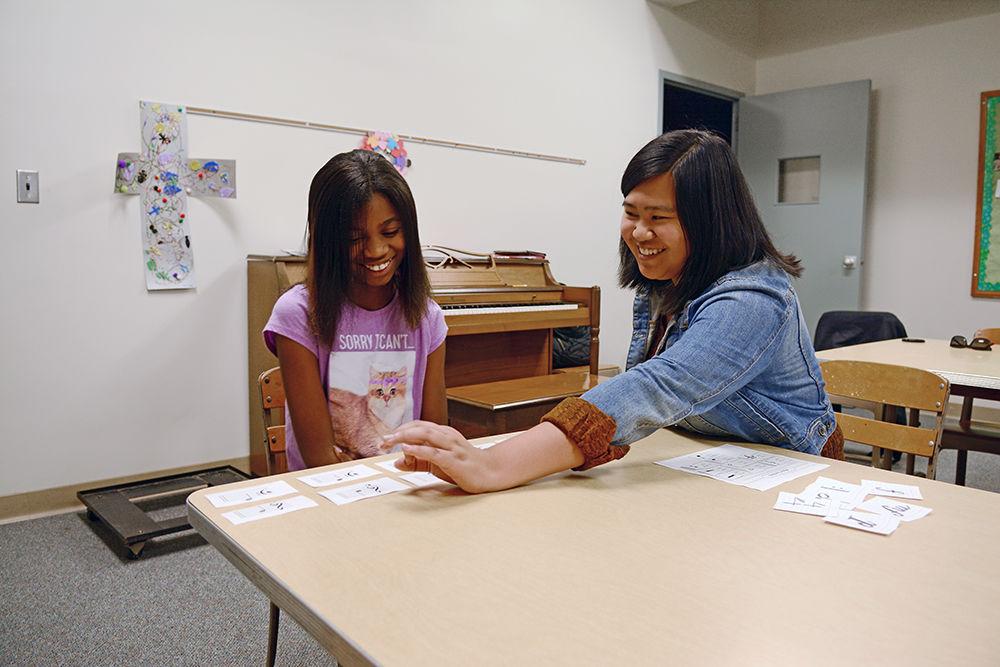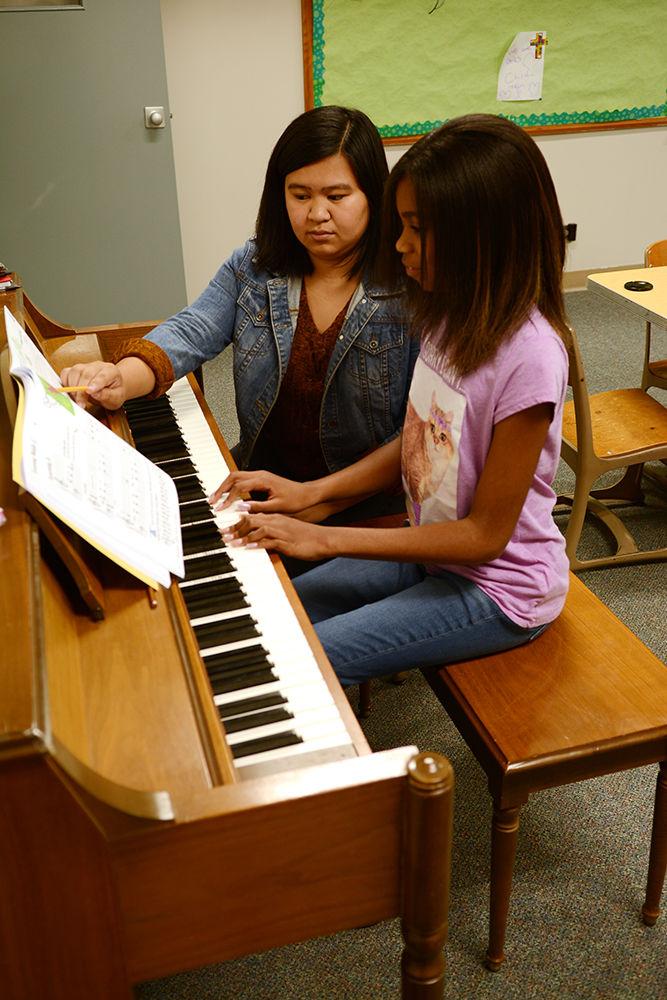It’s no secret that learning how to play an instrument can have a positive effect on the development, success and overall happiness of a child. However, children who may benefit the most from music lessons often reside in underserved communities. Musical Empowerment, a student organization here at NC State, seeks to solve this matter by pairing up elementary school students with college mentors dedicated to providing Raleigh’s underserved youth with complimentary music lessons and guidance. This not only provides kids with the opportunity to learn through musical expression for free, but also fosters meaningful relationships between mentors and mentees.
Musical Empowerment began in 2002 at UNC-Chapel Hill, and after becoming a 501(c)3 non-profit organization in 2012, set down roots at NC State and Wake Forest University. The NC State chapter was founded by a group of Park Scholars in 2015 and, through the Civic Engagement Initiative, music lessons officially began in fall 2015 after much planning and preparation.
The recruitment processes for finding student teachers and elementary pupils are vastly different. Shane Reagan, a fourth-year studying electrical engineering and computer science, currently teaches one of the six elementary students and is also the senior co-president of Musical Empowerment here at NC State.
“In the early days, we would go to the elementary schools first to recruit students,” Reagan said. “We would say we have x amount of students to teach, but sometimes we struggled to get those teachers to stay with us and commit their time.”
This semester, 16 new teachers have been recruited through music department connections and booths at Packapalooza and Campus Connections. The NC State chapter provides lessons to six students and has the goal of pairing 22 student teachers by the end of the semester.
Amith Mandavilli, a third-year studying political science, is a teacher relations chair in the organization and stresses the importance of building a relationship within the student-teacher pairs.
“The requirement is for two years because sociological research studies show that relationships lasting less than two years are more harmful to younger kids,” Mandavilli said.
Elementary students who stick with the program for three years get to keep their musical instrument for free, and the co-president’s student recently earned his trumpet. College mentors notice positive improvements in their students’ behaviors after more time in the program.
“In the beginning of my lessons with Jack he was pretty quiet,” Reagan said. “I would ask, ‘what did you learn in math?’ and he would reply, ‘numbers,’ but after some time he really started to open up and seems to be enjoying school more.’”
Musical Empowerment is partnered with two local schools, Olds Elementary and Wiley Elementary, in order to find students who fit the program well. The principals and social workers at each of these schools fill out applications of the students they believe would benefit the most.
“There was a necessity to address the transportation issue for some of the kids,” Reagan said. “Over at Wiley, we partnered with the W-Learning program, which comes from the YMCA after school program, to reach the underserved kids whose parents work during after school [hours].”
Musical Empowerment aims to do more beyond simply providing music lessons by broadening experiences and having mentors take special interest in their pupils’ lives. Most of the mentors are involved in music ensembles and try to invite the children to performances.
“My student Jack has been to a few of my jazz concerts here,” Reagan said.
The organization also holds two of their own concerts a year, one of which is a fall recital at Holy Trinity Lutheran Church in November. While this performance is open to the public, it is primarily a more private setting for parents and teachers to come see their child’s progress.
“There is a benefit concert in January at Stewart Theater,” Mandavilli said. “We [will] have four acapella groups and student performances, all raising funds for Musical Empowerment.”
During a typical meeting, students have their parents in the room for their weekly 40-minute music lessons while they play pianos, violins, guitars, trumpets or the club’s newly donated instrument — a banjo.
Michael Warstler, a fourth-year studying mechanical engineering, has been teaching the piano to his student for two years and enjoys getting to see him open up during lessons.
“I would like more teachers to join,” Warstler said. “I didn’t have that much teaching experience [when I started teaching], and you get to help other people out.”
Musical Empowerment is working toward connecting active student teachers more through group dinners and teacher support groups, where they can discuss club updates, lesson plans and ideas for improvement.
“We are fortunate enough to find teachers who are committed, and we are making a real effort to connect them,” Reagan said.
The organization is making strides toward becoming a larger and more interconnected group, enhancing the lives of young kids in the Raleigh area who may have wanted to learn music but previously had no way to.
“A Juilliard for kids,” Mandavilli said. “That’s what we try to be.”
Student teachers can join Musical Empowerment at the beginning of both semesters by emailing: ncsu@musical-empowerment.org.
Gabbie Consing, a second year studying psychology walks Ke'mora Poore through a new piece of music on Tuesday at Holy Trinity Lutheran Church. Gabbie is a part of Musical Empowerment, a group that seeks to serve Raleigh youth who may not have access to music lessons without their help. The program provides free instruments, books, and trainings to the participants.














